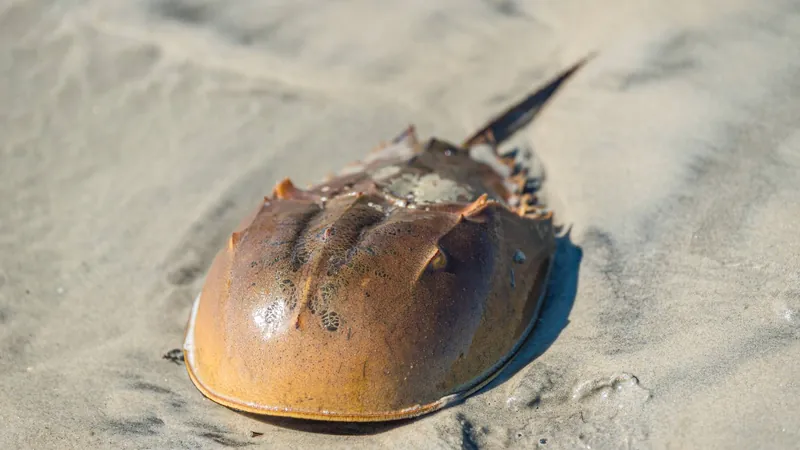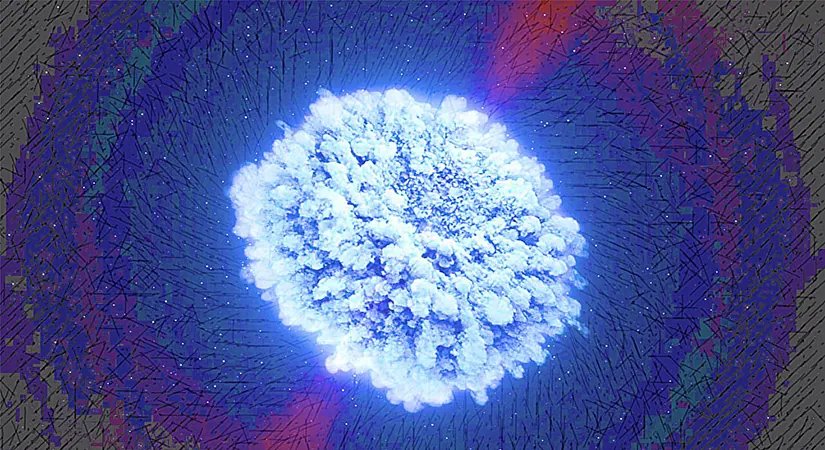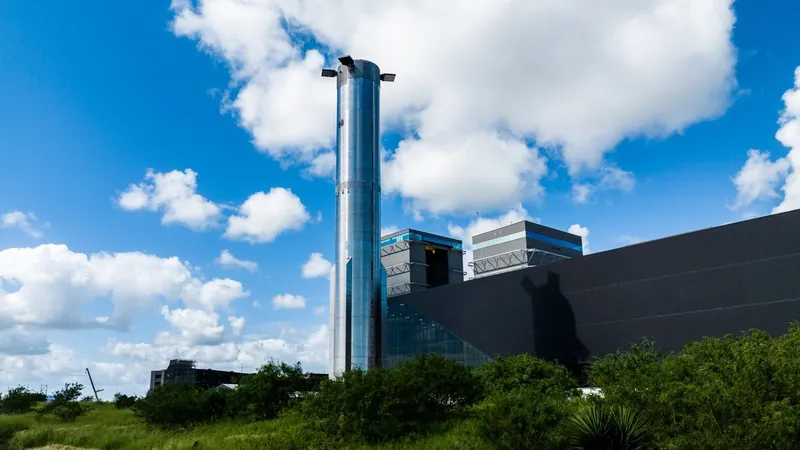
Historic Policy Change: Pharma Now Has Green Light to Save Horseshoe Crabs
2024-11-01
Author: Rajesh
Introduction
In a groundbreaking move, the United States Pharmacopeia (USP), a premier quality standards organization, has announced an early adoption policy that permits the pharmaceutical industry to utilize non-animal derived tests. This pivotal decision is poised to protect the iconic horseshoe crab, a species that has withstood Earth's evolutionary trials for over 450 million years, all while enhancing the precision of pharmaceutical testing protocols.
The Importance of Horseshoe Crabs
Horseshoe crabs, which have survived multiple mass extinction events, including those caused by asteroid impacts, are vital to coastal ecosystems. Their unique blue blood plays a crucial role in the medical field, particularly in testing for endotoxins—harmful contaminants that can induce severe reactions like fever and septic shock. Traditionally, these creatures have been harvested and subjected to blood extraction to obtain a substance called Limulus Amebocyte Lysate (LAL), which clots in the presence of endotoxins. Unfortunately, this practice poses a significant threat to their populations, which are dramatically declining due to overharvesting and habitat loss.
Advancements in Testing Methods
Fortunately, advancements in science have produced alternative synthetic testing methods that do not rely on horseshoe crab blood. These tests offer numerous advantages:
Advantages of Synthetic Testing Methods
1. **Scientific Reliability**: Blood-based tests can yield false positives, leading to unnecessary concerns over contaminants that may not actually be present. Synthetic alternatives reduce this risk and improve the overall accuracy of test results.
2. **Supply Chain Stability**: Relying on horseshoe crab blood can create vulnerabilities in the supply chain due to environmental changes and potential disasters (for instance, oil spills near Delaware Bay, where many crabs are found). Synthetic tests offer a stable and scalable alternative that is less susceptible to external threats.
3. **Economic Efficiency**: The high cost of medications is a concern for pharmaceutical companies. By adopting synthetic testing methods, companies can mitigate supply chain disruptions and potential price hikes that could arise from reliance on animal-derived products.
4. **Environmental Sustainability**: The decline of horseshoe crab populations has a cascading effect on local wildlife, particularly migratory shorebirds like the red knot, which depend on crab eggs as a food source during their long journeys. Transitioning to synthetic methods aligns with modern sustainability initiatives and helps protect these interconnected ecosystems.
5. **Animal Welfare**: The extraction of blood from horseshoe crabs requires them to be captured, transported, and bled, often resulting in serious harm or death to the animals. As society evolves towards more humane treatment of animals, the pharmaceutical industry is embracing alternatives that align with these ethical standards.
Industry Leaders in the Transition
While Eli Lilly has emerged as a leader in this transition—having already shifted 80% of its endotoxin testing to synthetic methods—many other companies have been eager for this policy change to initiate their own transition. The newfound availability of horseshoe crab-free testing options has made the case for ethical and sustainable practices stronger than ever.
Conclusion
As we celebrate this monumental policy shift, it's essential to recognize the intertwined fates of human health and wildlife conservation. By embracing these innovative testing alternatives, the pharmaceutical industry is not only advancing medical science but also taking a crucial step toward protecting the environment and its inhabitants. The time for change is now, and together we can forge a path that honors the past while securing a sustainable future for both horseshoe crabs and humanity.



 Brasil (PT)
Brasil (PT)
 Canada (EN)
Canada (EN)
 Chile (ES)
Chile (ES)
 España (ES)
España (ES)
 France (FR)
France (FR)
 Hong Kong (EN)
Hong Kong (EN)
 Italia (IT)
Italia (IT)
 日本 (JA)
日本 (JA)
 Magyarország (HU)
Magyarország (HU)
 Norge (NO)
Norge (NO)
 Polska (PL)
Polska (PL)
 Schweiz (DE)
Schweiz (DE)
 Singapore (EN)
Singapore (EN)
 Sverige (SV)
Sverige (SV)
 Suomi (FI)
Suomi (FI)
 Türkiye (TR)
Türkiye (TR)